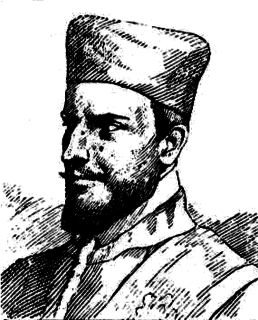 W
WEliogabalo (Heliogabalus) is an opera by the Italian composer Francesco Cavalli based on the life of the Roman emperor Heliogabalus. The author of the original libretto is unknown but it was probably reworked by Aurelio Aureli. The opera was composed in 1667 and was intended to be premiered during the Venetian Carnival season of 1668. In fact, it was never staged and was replaced by another opera of the same name by Giovanni Antonio Boretti, perhaps because Cavalli's style was considered too old-fashioned.
 W
WDie Ermordung Cäsars, Op. 32, is an opera in one act by Giselher Klebe who also wrote the libretto based on the translation by August Wilhelm von Schlegel of Shakespeare's play Julius Caesar.
 W
WFausta is a melodramma, or opera seria, in two acts by Gaetano Donizetti. The Italian libretto was partly written by Domenico Gilardoni, who died while doing so: the remainder was written by Donizetti. The literary source of the opera's libretto is Crispo, a tragedy improvised by Tommaso Sgricci on 3 November 1827.
 W
WGermanicus is an opera by Georg Philipp Telemann, to a libretto in German by the poet Christine Dorothea Lachs, fourth daughter of Nicolaus Adam Strungk of Dresden. The opera was written in 1704 and revised in 1710. It is supposedly one of the twenty operas that Telemann wrote for the opera house in the Oper am Brühl in Leipzig.
 W
WGiunio Bruto is a 1781 opera seria in two acts by Domenico Cimarosa to a libretto by Eschilo Acanzio.
 W
WLucio Silla, K. 135, is an Italian opera seria in three acts composed by Wolfgang Amadeus Mozart at the age of 16. The libretto was written by Giovanni de Gamerra, revised by Pietro Metastasio.
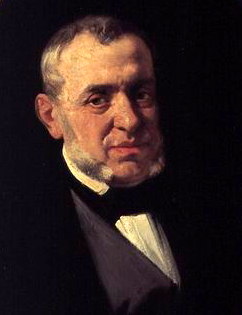 W
WOrazi e Curiazi is an opera by the Italian composer Saverio Mercadante. It takes the form of a tragedia lirica in three acts. The libretto, by Salvadore Cammarano, is based on the Roman legend of the fight between Horatii and Curiatii. It was first performed at the Teatro San Carlo, Naples, on 10 November 1846.
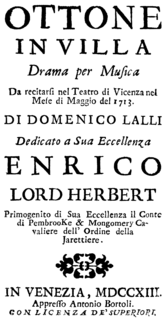 W
WOttone in villa is an opera in three acts by Antonio Vivaldi to an Italian libretto by Domenico Lalli. It was Vivaldi's first opera and premiered on 17 May 1713 at the Teatro delle Grazie in Vicenza. Lalli's pastoral drama is set in ancient Rome and was a condensed adaptation of Francesco Maria Piccioli's satirical libretto for Carlo Pallavicino's opera Messalina (1679). However, Lalli changed several of the characters in Piccioli's libretto. Messalina became an invented character, Cleonilla. Emperor Claudius became another Roman emperor, Otho (Ottone), who had already appeared as a protagonist in Monteverdi's L'incoronazione di Poppea (1642) and in Handel's Agrippina (1709).
 W
WScipione, also called Publio Cornelio Scipione, is an opera seria in three acts, with music composed by George Frideric Handel for the Royal Academy of Music in 1726. The librettist was Paolo Antonio Rolli. Handel composed Scipione whilst in the middle of writing Alessandro. It is based on the life of the Roman general Scipio Africanus. Its slow march is the regimental march of the Grenadier Guards and is known for being played at London Metropolitan Police passing out ceremonies.
 W
WScipione affricano is an opera in a prologue and three acts by Francesco Cavalli. It was designated as a dramma per musica. The Italian libretto was by Nicolò Minato, based on Livy's "The Continence of Scipio".
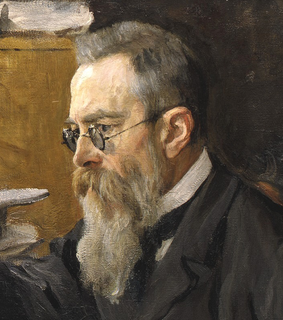 W
WServilia, is an opera in five acts by Nikolai Rimsky-Korsakov. The work was completed in 1901, and was first performed in 1902 in St. Petersburg, Russia. The composer wrote the libretto, which is based on the drama by Lev Alexandrovich Mey. The story is set in Ancient Rome during Nero's reign.
 W
WSilla is an opera seria in three acts by George Frideric Handel. The Italian-language libretto was by Giacomo Rossi. The story concerns the Roman dictator Lucius Cornelius Sulla as recounted by Plutarch.
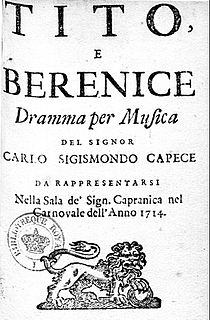 W
WTito e Berenice is an opera in three acts composed by Antonio Caldara to a libretto by Carlo Sigismondo Capece. It premiered on 10 January 1714 at the Teatro Capranica in Rome. The story centers on the love affair between Berenice of Cilicia and the future Roman Emperor Titus. The libretto borrows from earlier plays on the same subject by Corneille and Racine (Bérénice), both of which premiered in 1670 and took as their starting point Suetonius's brief account of the love affair in De vita Caesarum.
 W
WL'ultimo giorno di Pompei is an opera in two acts composed by Giovanni Pacini to an Italian libretto by Andrea Leone Tottola. It premiered to great success at the Teatro San Carlo in Naples on 19 November 1825 followed by productions in the major opera houses of Italy, Austria, France, and Portugal. When Pacini's popularity declined in the mid-19th century, the opera was all but forgotten until 1996 when it received its first performance in modern times at the Festival della Valle d'Itria in Martina Franca. L'ultimo giorno di Pompei influenced either directly or indirectly several other 19th-century works, most notably Karl Bryullov's 1833 painting, The Last Day of Pompeii.
 W
WLa vestale is an opera by Italian composer Saverio Mercadante. It takes the form of a tragedia lirica in three acts. The libretto, by Salvadore Cammarano, was influenced by Victor-Joseph Étienne de Jouy's libretto for Spontini's more famous 1807 opera of the same name.
 W
WVestas Feuer is a fragment of an opera composed in 1803 by Ludwig van Beethoven to a German libretto by Emanuel Schikaneder. The plot involves a romantic intrigue in which the heroine temporarily becomes a Vestal Virgin. Beethoven set to music only the first scene of Schikaneder's libretto, then abandoned the project. The fragment is rarely performed.
 W
WVirginia is an opera, a tragedia lirica, in three acts by composer Saverio Mercadante. The Italian libretto by Salvadore Cammarano is based on Vittorio Alfieri's tragedy of the same name. Alfieri's play was in turn taken from a story in Livy's Ab Urbe condita. Although initially written for performance in 1850 at the Teatro di San Carlo in Naples, the subject matter of Mercadante's opera was objected to by the Bourbon government censors and performance was banned outright. That decision was widely ridiculed, not just in Italy, but throughout Europe. After the fall of the Kingdom of the Two Sicilies in 1861, the ban on the opera no longer existed.